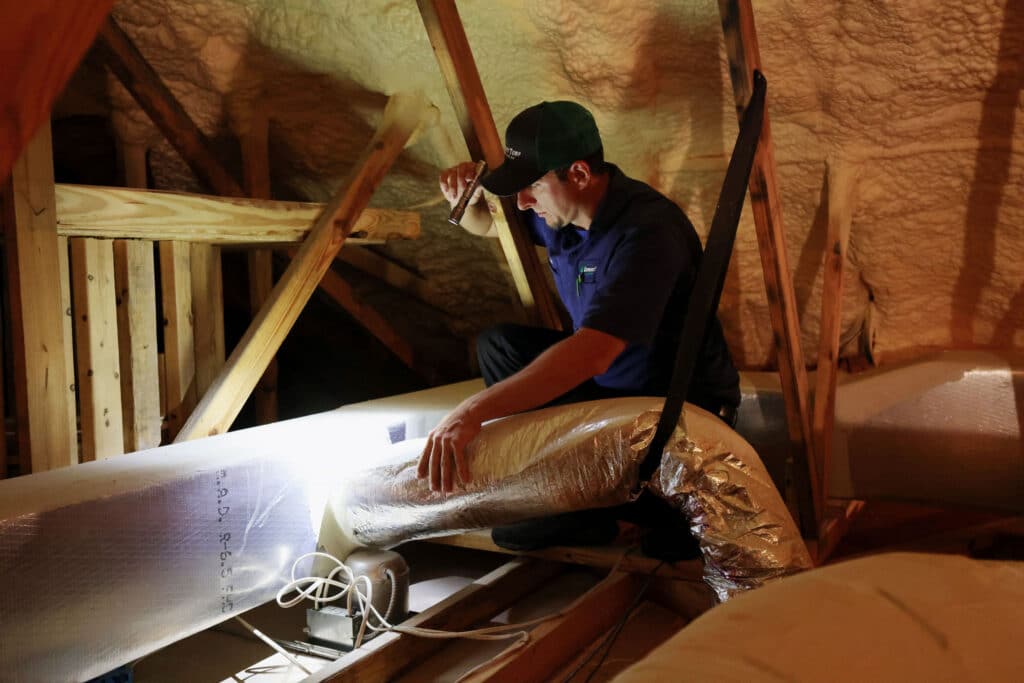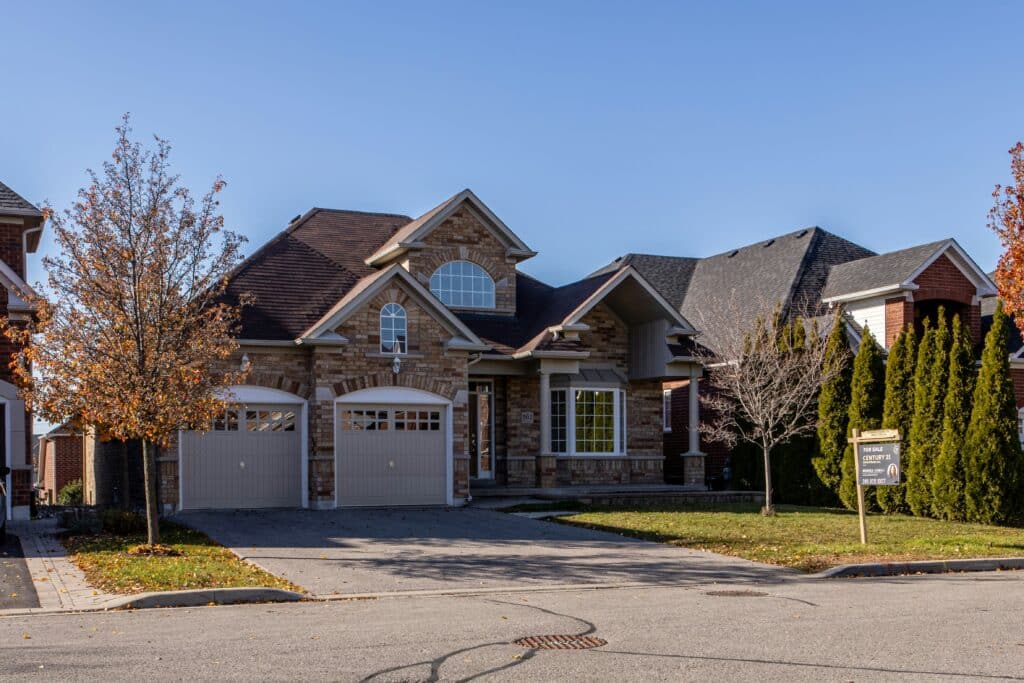In Florida, a working HVAC unit is essential to living comfortably throughout the year. The last thing anyone wants is for their AC to go out or deal with costly repairs. Regularly conducting preventative maintenance is a great way to keep your HVAC working efficiently year-round. This guide will go over what preventative maintenance is, why it matters, and what steps you can take to properly maintain your HVAC unit.
What Is HVAC Preventative Maintenance?
HVAC preventative maintenance usually describes two things:
- Safe, do-it-yourself maintenance a homeowner can perform to keep their heating and cooling system running smoothly.
- More advanced maintenance done by an HVAC technician that is unsafe to do without professional training.
In both cases, preventative maintenance extends the life of the HVAC system, keeps it functional, and protects the home from costly and/or dangerous repairs.
Why Is Regular Maintenance Important?
Regular preventative maintenance is essential for any HVAC unit. While it may seem like extra work, there are several benefits of preventive maintenance for your heating and cooling systems. Some of these benefits include:
- Lower Energy Bill: A working HVAC unit is an efficient HVAC unit. When everything is in working order, it takes less energy to keep your home cool and comfortable. This not only makes your home more sustainable and energy efficient, but it will also lower your energy bills—saving you money in the long run.
- Avoid Costly Repairs: Like any other checkup—whether it’s your health, your car, or in this case, your HVAC unit—getting it looked at before something is wrong will help identify potential future problems and nip them in the bud. Preventative maintenance allows your technician to spot worn-down parts and get them fixed before they become an expensive repair.
- Extend HVAC Unit Lifespan: In Florida especially, HVAC units tend to have a shorter lifespan. An HVAC replacement is expensive, so you’ll want to get the most use out of your current unit. Regular maintenance will extend your unit’s lifespan by ensuring parts aren’t being prematurely worn down or breaking.
- Keep Your Home at an Even Temperature: Faulty parts in your HVAC unit can cause your home to have hot and cool spots or extreme swings in temperature. Ideally, you want your home at an even temperature. Keeping your HVAC well-maintained prevents this by fixing any parts before they become an issue.
- Protect Your Household’s Health: The more you use your heating and air conditioning systems, the more pollutants—such as dust, pollen, and even mildew—begin circulating in your home’s air. This can cause lung irritation and allergies. Cleaning your system’s filters and ducts regularly increases your air quality and avoids health issues caused by air irritants.
- Prevent Emergencies: Preventative maintenance doesn’t just help avoid HVAC repairs—it can also protect your home from electrical fires and dangerous fumes like carbon monoxide. A faulty heating system can cause these emergencies and put your home and family at risk. Regular preventative maintenance, especially before you need to turn on the heat, can help protect your home from emergency situations.
How Often Should Preventative Maintenance Be Done?
How often preventative maintenance is done will vary depending on what maintenance you’re performing. For example, some air filters require monthly changes, while others may only need to be changed once or twice a year.
A good rule of thumb is to perform preventative maintenance before you switch from heat to cool or cool to heat—this allows you to make sure your cooling and heating systems are in operating order before you need them the most. Professional inspections and maintenance should be conducted at least once a year.
Your Preventative Maintenance Checklist
There are some basic steps you can take to maintain your HVAC system yourself. This checklist will walk you through each step you need to take to keep your system running efficiently.
Filter Maintenance
This is going to be the easiest task on your preventative maintenance checklist. Your air filter will tell you how often you need to change it out. We suggest buying more efficient air filters, so you only have to change it a few times a year rather than monthly.
Check Refrigerant Lines
Refrigerant keeps your air cool. You’ll want to check periodically to make sure your refrigerant lines aren’t leaking and that your refrigerant levels are normal. Low levels of refrigerant can cause your AC to freeze up and may lead to needing a repair.
Test Thermostat
Another simple task on the checklist is to ensure your indoor thermostat is working properly. Make sure the heat or air conditioning turns on when your home reaches the temperature you’ve set. If you notice a discrepancy between what your thermostat says and the temperature of the house, it’s time to get a professional inspection.
Clean Around Outside Unit
Debris like leaves or twigs can cause issues with your outside HVAC unit. Keeping the area clean and removing debris from the top of the unit can help prevent clogs or damaged parts.
Ensure Proper Drainage
Your condensate drain catches water and humidity from the air. You’ll want to make sure the water is draining properly to keep your home dehumidified and avoid water damage.
Watch for Strange Noises or Smells
Watching out for strange noises or smells from your HVAC system is something you can easily do every day. In general, your HVAC system should be quiet, and there shouldn’t be a smell unless you’re turning on the heat for the first time in a while. Any unusual noises or smells are reason to call in a professional as soon as possible.
Buy Carbon Monoxide Detector
This is a more passive task but an essential one. Carbon monoxide is a dangerous gas that is known as the silent killer. HVAC systems, especially if your heat uses gas, occasionally run the risk of producing carbon monoxide. A carbon monoxide detector will alert you before your home reaches dangerous levels. If your carbon monoxide detector goes off, immediately exit your home with your family members and pets and call the fire department.
Have a Professional Inspection
A professional inspection is the most important step in all of this. Unless you’re an HVAC technician, there’s only so much you can safely maintain without potentially causing damage to your system or putting yourself in danger. A professional will handle the more complex parts like electrical connections, coils, and ducts. We recommend an HVAC professional inspect your unit once or twice a year.
Keep Your HVAC System Up and Running with Comfort Temp’s Preventative Maintenance Plans
If you’re ready to get serious about HVAC maintenance, it’s time to consider a preventative maintenance plan. These plans are a monthly or annual investment where a professional HVAC technician will visit your home for an inspection and preventive care on a regular basis. At Comfort Temp, we offer two convenient preventative maintenance plans—created to meet your needs and protect your home. Never worry about your HVAC system again, and sign up for one of our preventative maintenance plans today!

